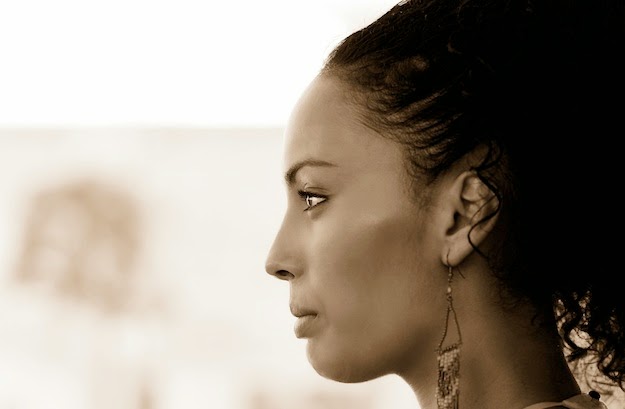What "Light Girls" Missed: On Getting to the Root of Colorism as an African Woman

by Nneka M. Okona
Last night, I tuned into the much anticipated Light Girls documentary on OWN, which intended to be a follow-up to 2011’s Dark Girls, which examined how colorism has affected Black women of all shades.
Continue reading...
I watched for two hours as Amber Rose, Essence Atkins, Keke Wyatt and countless others told their personal stories of what colorism has meant to them and the manifestations of it in their lives. Many recounted tales of verbal and physical harassment and being made to feel as if they weren’t Black enough. Despite what I felt was honesty emanating from each of those women, I cringed as I watched.
Something really seemed to be missing from the overall discourse.
Maybe it’s because as a woman who is light-skinned there are things I’m willing to admit, there is privilege that I know that I’ve benefitted from that I can attest to without batting an eye.
I grew up in the suburbs east of Atlanta, Georgia, minutes away from the renowned Monadnock Stone Mountain. Martin Luther King, Jr. referenced it in his “I Have A Dream” speech, and it is a well-known fact that the Klu Klux Klan routinely held their meetings atop that mountain, which overlooks the downtown Atlanta skyline and the neighboring states at a distance.
My father routinely bleaches his skin, even to this day. When I was younger, I would watch him slather what I now know to be bleaching cream all over his face, neck, arms and hands. Out of sheer curiosity, at one point, I began to sneak and use some of my Dad’s special lotion to rub on my hands. I made a habit of sneaking it for weeks until my mother noticed splotches on my hands. When she figured out what I had done, she was horrified.
Just like the women in the documentary, I could recount the stories of people telling me that I thought I was better than them because of my lighter skin. I could go into grave detail about being told I couldn’t be African because I was light-skinned. I could even talk about the times my father insinuated that his having lighter skin as a man was a prized possession, and the times when I brought over a friend who was dark-skinned and how he whispered to my mother derogatory words about her.
But I somehow feel like taking that route, which has painstakingly been taken over and over again, wouldn’t be helpful or fruitful. To be completely truthful, I’m not interested in pulling out a measuring stick and having a full-out war of words and competition of whose pain is more real and palatable. There is a collective shared pain.
At what point and at what cost, I wonder, can we be more willing to be honest, especially for light-skinned women like me? Because I can outright say it. I know that my lighter skin is privilege in itself. I know that it has afforded me opportunities—preferential treatment in hiring, more income once employed, and others’ sense of trustworthiness and comfort around me—that may not have been deemed to other women who are brown or dark-skinned. I know I’ve benefitted from the gaze of males who prefer a typical “redbone” with curves like mine, and the ability to turn on the television, watch movies, or read magazines where there is never a shortage of women who look like me. Chiefly, I know that my lighter skin makes people so much more comfortable hearing me talk about things which are controversial and racially charged, especially as an African woman screaming from the mountaintops that more voices and perspectives of the African Diaspora should be included across the board.
These are the things that I know, have admitted, and constantly have to check myself on.
Despite all those things, despite me knowing and checking my privilege, moment to moment, it’s much bigger than that. Colorism, at its root, is pervasive and damaging because most of us see it as just a surface level issue and don’t see its deeply embedded roots in the psychological fabric of Black folks here in the United States. We have overlooked and perhaps not connected the dots that colorism, at its core, is the ghost of European colonialism, Eurocentrism, and global White supremacy. It is the notion that our skin and our humanity is only measurable, valuable, and worthy in its proximity to Whiteness.
Can we see colorism for what it truly is? Yet another attempt to draw us further away from ourselves, to not like ourselves more, to see fault in ourselves more? To pit each other against each other. To see each other as the enemy instead of looking the institutions of White supremacy, White privilege, and anti-Blackness square in the eyes.
That’s what I think we should remember and bear in mind: Our shared pain runs deep through a long history, and exists only to make us dig into the shadows of shame. But there needn’t be any shame, nor comparison of our skin or various shades it appears in.
There is an inherent beauty within us all.
Nneka M. Okona is a writer based in Washington, DC. Visit her blog, www.afrosypaella.com, her website, about.me/nnekaokona or follow her tweets, @NisforNneka.

No comments: